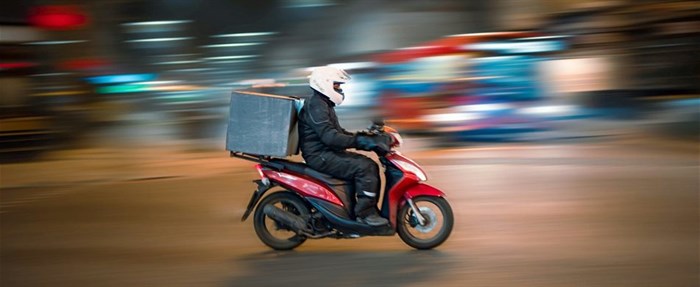
Related
Top stories






More news

ESG & Sustainability
Redisa calls on govt to fix South Africa’s “broken” waste management system






























Africa’s last-mile delivery market is expected to be worth $2.3bn (R43bn) by 2030. If one considers that the continent will be home to some two billion people by 2050, it becomes clear that this sector will grow exponentially and offer many new business opportunities.
Meanwhile, South Africa’s total e-commerce market is on track to reach $16.3bn (R307bn) in the next six years, according to a deep-dive market assessment by RationalStat.
However, suppose the country’s e-commerce businesses are to take advantage of the projected boom in online sales. In that case, their last-mile delivery service offering must correspond with growth in that market sector. With so much competition, there is no other option.
“The final leg of delivery profoundly shapes the customer's journey,” says Anita Erasmus, head of business at Bob Group.
“The speed and seamlessness of the last-mile delivery directly dictate the pace and quality of your customer’s experiences.”
A typical last-mile delivery service encompasses transporting goods from a distribution centre to the customer's doorstep. It begins with order processing and picking and packing items for shipment, followed by transportation using various vehicles depending on the scale and location of delivery.
South Africa’s last-mile delivery landscape faces significant challenges, such as security concerns and electricity limitations, distinguishing it markedly from the US and Europe.
Local companies must invest in security measures, such as GPS tracking and route planning, to minimise their exposure to potential security threats.
At the same time, electricity limitations hinder the last-mile industry from aligning with the global electric vehicle trend and reaping the environmental benefits it offers.
Despite these challenges, several notable players in South Africa are winning the last-mile delivery game by offering ‘smart’ solutions that integrate advanced technologies and data solutions, such as GPS tracking, route optimisation algorithms, and real-time tracking, to streamline operations.
They leverage data analytics for insights into delivery patterns and customer preferences, enabling informed decisions for route planning and resource allocation. They prioritise enhanced customer experiences with real-time updates and flexible delivery options.
Erasmus says companies like Pargo, for example, have succeeded in South Africa with innovative solutions in its counter-pickup services model.
Bob Group has also developed Bob Box, a smart locker and counter solution that provides secure and confidential shipments for couriers, online merchants and customers.
“Given the challenges presented by load-shedding, we have ensured that our Bob Box locker network uses battery power for always-on service,” Erasmus says.
She adds that traditional logistics firms are increasingly investing in innovative technology to stay competitive in the market and enhance service offerings for their customers.
Erasmus advises that when assessing a last-mile delivery option, e-commerce businesses should consider fundamentals like excellent service delivery, competitive pricing, customer options, and seamless integration.
“Offering customers options for delivering parcels, ranging from door-to-door services to locker solutions, is essential for e-commerce businesses. However, to execute this effectively, businesses must seamlessly integrate with service providers to ensure a streamlined process, benefiting both fulfilment operations and the end-customer experience.”